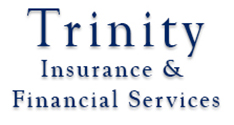Brad Pistole
Trinity Insurance & Financial Services
Should You Take Out a Loan From Your 401(k)?
A 401(k) loan can be a tempting option when you need quick cash. But it's essential to understand the potential consequences of taking out this loan before making a decision. In this blog post, we will cover what exactly a 401(k) loan is, discuss alternative borrowing options, and provide some final thoughts on taking out a loan from your 401(k).
What is a 401(k) Loan?
A 401(k) loan is when an individual borrows money from their retirement savings plan. Generally speaking, this type of loan allows you to borrow up to 50% of your vested account balance or $50,000 (whichever is less). The interest rate on these loans is low — typically prime plus 1%, but it does vary by provider. The repayment period for the loan is usually five years but can be extended to 10 years if the money taken out was used for something like buying a home. It's important to note that tax consequences are associated with taking out one of these loans — any funds borrowed are subject to income tax and an additional 10% penalty if they're not repaid on time.
Think Twice Before You Borrow From Your Future
Taking out a loan from your 401(k) might seem like an easy way to get money quickly, but it might cost you more in the long run. Not only do you have to pay the loan principal back plus interest, but you are also forgoing all of the potential gains that money would have earned if it had remained invested. Furthermore, there is always a chance that your job situation may change and force you to repay the loan within just a few months. That repayment can deplete your regular savings or leave you with an even bigger hole if these funds aren't available. Therefore, you should look at all your options before deciding to take out a loan from your 401(k).
Exploring Other Borrowing Options Before Taking Out a Loan From Your 401(k)
Before taking out a loan from your retirement savings account, consider exploring other borrowing options first. Taking out one of these loans can have profound implications for your retirement funds and reduce the amount of money you have set aside for other goals, such as purchasing property or paying off debt. Additionally, borrowing from other sources, such as credit cards or personal lines of credit, may offer lower interest rates than those associated with 401(k) loans – so be sure to do your research before committing!
Conclusion: Taking out a loan from your retirement savings may seem attractive in times of financial hardship, but making sure that you weigh all possible consequences before signing on the dotted line is vital. Consider exploring other borrowing options first, and always make sure that you will be able to repay any amount taken out before committing. After all, it's better to be safe than sorry when it comes to your financial future!
Many people have learned about the power of using the Safe Money approach to reduce volatility. Our Safe Money Guide is in its 20th edition and is available for free.
It is an Instant Download. Here is a link to download our guide:

Brad Pistole
Trinity Insurance & Financial Services
551 N. Farmer Branch Rd.
Suite 101
Ozark, Missouri 65721
brad.pistole@retirevillage.com
(417) 581-9222

Looking For Answers?
Download our Safe Money Guide and learn more about safe retirement options that can help you achieve your retirement goals safely - FREE!


